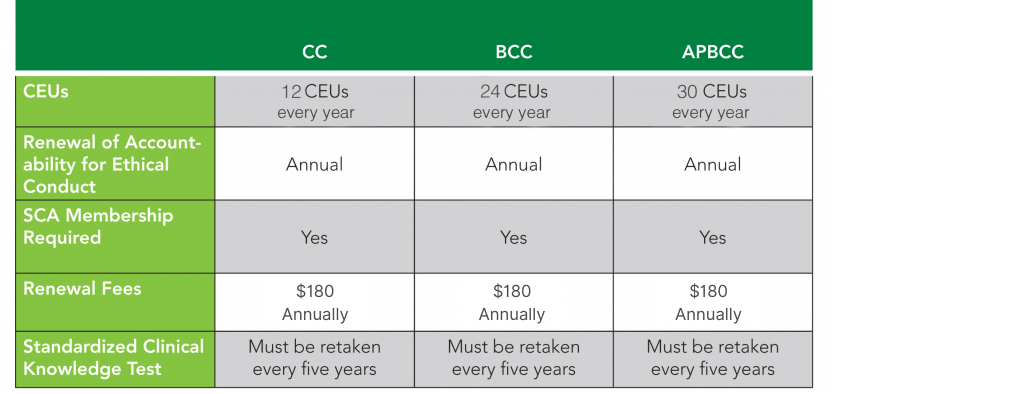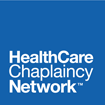Renewal Requirements
Requirements to Maintain Credentialed (CC) Status:
- 12 hours of continuing education every year that meet the foundational competencies as identified in the Scope of Practice.
- Annual renewal of Accountability for Ethical Conduct.
- Payment of annual membership fee in SCA and annual maintenance of Credentialed status (see fees).
- In addition, every five years one must apply for Credentialing renewal, by taking the Standardized Online Test. If the test is failed, chaplain can retake the test one more time free of charge. If additional retakes are necessary, there is a non-refundable fee each time to retake the test.
Requirements to Maintain Board Certification (BCC) Status:
- 24 hours of continuing education every year that meet the foundational competencies as identified in the Scope of Practice.
- Annual renewal of Accountability for Ethical Conduct.
- Payment of annual membership fee in SCA and annual maintenance of Certification status (see fees).
- In addition, every five years one must apply for Board Certification renewal which includes taking the Standardized Online Test. If the test is failed, chaplain can retake the test one more time free of charge. If additional retakes are necessary, there is a non-refundable fee each time to retake the test.
Requirements to Maintain Advanced Practice Board Certification (APBCC) Status:
- 30 hours of continuing education every year that meet the foundational competencies as identified in the Scope of Practice.
- Payment of annual membership fee in SCA and annual maintenance of Certification status (see fees).
- In addition, every five years one must apply for Advanced Practice Board Certification renewal which includes taking the Standardized Online Test. If the test is failed, chaplain can retake the test one more time free of charge. If additional retakes are necessary, there is a non-refundable fee each time to retake the test.
To Maintain the Hospice and Palliative Care Specialty Certification (APBCC-HPC) Status, follow the same guidelines for APBCC above, except that the continuing education credits must be in an area relevant to hospice/palliative care.
Renewal Requirements at a Glance

Requirements to Maintain the Spiritual Care Generalist :
- 4 hours of continuing education every two years that meet the foundational competencies as identified in the Scope of Practice.
- Renewal of Accountability for Ethical Conduct.
- Payment of renewal fee of $49 every two years.
What Constitutes Acceptable Continuing Education?
SCA believes that each board certified or credentialed chaplain is the best judge of what areas he/she needs additional learning to grow as professional chaplains. Please use the Scope of Practice as a guide to the content areas in which a professional health care chaplain should have knowledge and skill. Within that scope, we encourage each APBCC/BCC/CC to choose the content areas and modes of learning that will be most helpful in their work. We treat each chaplain like a professional and trust that they are (1) committed to continuous learning and (2) the best to judge what makes the most sense for their specific setting.
Some of the activities that would count as CE would be:
• Taking a course related to spiritual care.
• Going to a conference or seminar related to spiritual care.
• Taking training for a spiritual care related intervention such as Dignity Therapy.
• Listening to a webinar or other event on-line related to spiritual care.
• Reading journal articles or books related to spiritual care. A subscription to the Journal of Health Care Chaplaincy is included in your membership.
• Attending teaching rounds or other presentations in your institution or local area which impact spiritual care.
• Attendance at an SCA Community of Chaplains group.
• Writing or teaching related to spiritual care. Preparation time can be included.
• TV documentaries or other media events that bear on spiritual care. The documentary, End Well, on Netflix and the play, Aubergine, by Julie Cho are examples.
Dos and Don’ts
• DO send in your report on the SCA form provided. Please fill it out completely.
• DO make sure the hours total at least the minimum requirement for your status.
• DO include in the report only enough activity to satisfy your requirement.
• DO keep a record during the year of the CE you do. First, you will be surprised how much you actually do and, second, it will make it easy to file your report.
• DON’T send any supporting documentation. If we have questions, we will ask you but this is unlikely.

